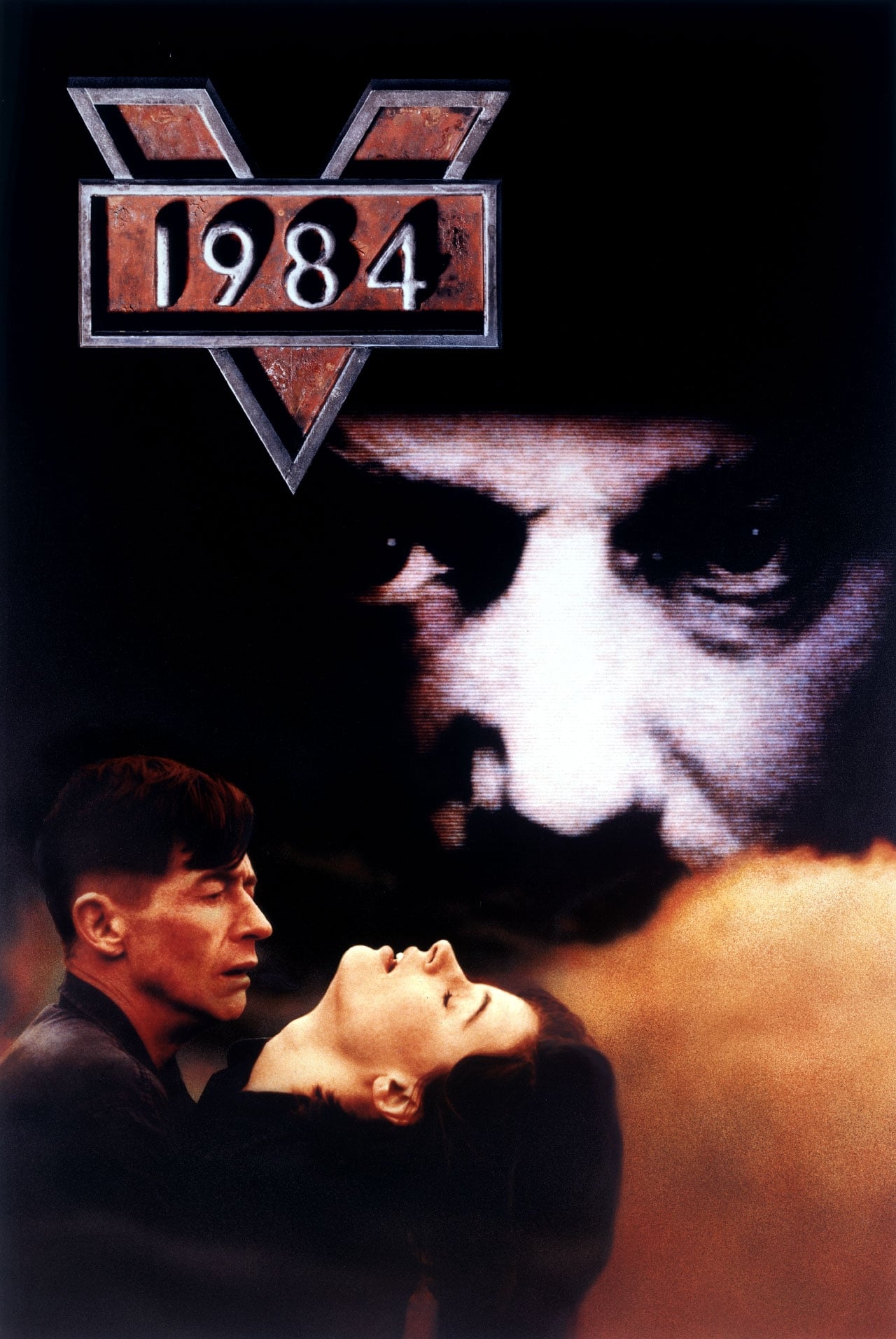[001] nineteen eighty-four (1984)
written and directed by michael radford

the keyword for this movie is “real”.
i’ve read the book the movie is based on four times now. the first time i read it, it changed my mind and life permanently. it opened a whole new dimension in the way i look at reality. i can even say that reading orwell’s book was the genesis of my critical thinking altogether. i might have been fifteen years old at that time, and since then, i’ve read it three more times, each of which added a layer of comprehension and cemented in my mind the knowledge it contains about how regimes work and how far in the crazy spectrum economies can get.
for me, at that time, the way reality was portrayed in nineteen eighty-four was not just a fictional construction nor a dystopian vision of the future. given the context i was born into, and how things developed since publication (the novel was published in 1949) to the time i got to read it (around 2010), i was inclined to think of the novel as, basically, a representation instead of what it really is: a satire. everything seemed to have an exact equivalent in real life and it felt like an awakening.
the perversions of society portrayed in the story were strikingly close to reality, and there’s a special kind of look and feel that comes with that type of moment of despair. living under a repressive regime, being subject to mass surveillance, and having your right to freedom taken away is, obviously, a very gray and sad moment in anyone’s life. however, that’s a sight we have today everywhere, at once. it’s enough to look around anytime and easily find gray despair. the way one can realistically represent those images in film is by having a developed sensibility that would help to come up with the aesthetics needed to convey the feeling through a combination of cinema elements and pure observation.
even when i say the nineteen eighty-four story is really close to reality, i have to admit that reality has not gotten that far yet. even thinking technically, back in 1984, when the movie was shot, the world and its economy was even less of a mess relative to right now. so to think about “how it might look like, how it might sound like, how it might feel like should the current status go to hell” was, in fact, the job that was beautifully and masterfully imagined by radford and deakins; nothing has come closer to what i have created in my mind by reading a book than this representation.
the main photography for the movie was shot during april – june 1984, the exact time frame orwell imagined the story in his book developed. deakins, the cinematographer, decided to use a processing technique in the development of the film called bleach bypass, which resulted in reduced color saturation and increased contrast images. this specific decision gave the film its visual soul: gray tones, poor lights, barely any color. in fact, both deakins and radford wanted to shoot the film in black and white, but they settled for this technique instead due to budget limitations. so shooting this with close to no colors was, from the beginning, one of the ideas and conceptions that got the film closer to its objective: to look sad and empty of any life. if the director had a plan, this is one big step to it.
the film has two scores. that is, two different artists composed and recorded music for the film. the two pieces were interchangeably the main music score for the film in different releases due to disputes between director michael radford and the rights-holder that financed the movie. different distributions and publications of the film contain either the dominic muldowney score or the eurythmics one, except for the release by the criterion collection, which contains both (and was the one i watched).
depending on the version you are watching, the experience will differ; muldowney composed an orchestral score that goes more with the slow, dark, and tense vibe of the visuals and is directed with a subtle hand for the fade-ins and outs of each instrument. on the other hand, the eurythmics version uses sounds more aligned with dark-pop kind of music, as if david bowie was the man behind it and a whole band of electronic instruments were playing four by fours. with this version, there were futuristic sounds setting the tone, not so depressing and blue, but rather like a dystopian or maybe post-apocalyptic society on the brink of revolution, and one that holds hope. the sounds and ambients both evoke, however, are completely different, yet they both tell their own stories and, professionally, fulfill the mission of creating ambients, setting the tone, and enhancing emotions quite well. independently of the political and economic reasons behind the origin of each score, we have these two versions that both deserve good appreciation.
lastly, john hurt and suzanna hamilton. they are the pieces that bring everything together. a perfect casting for both. while winston is a character that holds hopelessness, looks so thin, almost slender, and moves slowly and with little intent, julia is a young woman, full of contradictions and energy, with a healthy look and decisive movements. both actors were the perfect visual match for these characters and the performance by both met every expectation. hurt’s weary appearance and hamilton’s electrical face were, almost perfectly, the visual elements that compressed the whole experience into a good film.
overall, this is the perfect combo for one of the most important books i have ever read. the story living in my head was beautifully represented by these images and i am comfortable knowing that, no matter how bad others' interpretations go, we will always have orwell’s or radford’s pieces to solace the soul.
